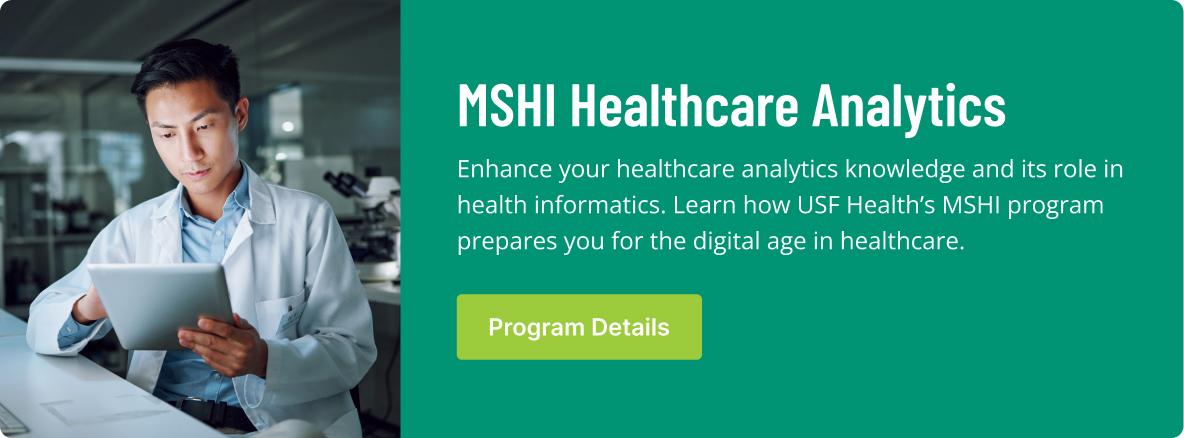The healthcare industry has moved into innovative technology in a big way this past decade, spurred by a federal government mandate for medical operations to adopt electronic healthcare records.
But while the initial move involved record keeping and payment processing, the next wave of healthcare technology is focusing on analyzing and improving patient care.
A big part of that involves data analysis, particularly for those trained in health informatics, which merges technology and healthcare in a way that typical data analytics programs do not.
Hospitals, already constrained by tight budgets, increasingly hire outside vendors to implement health data analytics strategies. These consultant jobs offer a new career path for those who want to use their skills to improve patient care.
Uses of Health Analytics
The basic definition of a health care analyst is one who collects, analyzes and interprets healthcare data. In turn, this data is used to improve processes within a medical operation (such as a hospital) as well as identifying areas where healthcare outcomes can be improved.
The uses of this data-driven approach to healthcare are only beginning to emerge, but some uses already have become key to medical operations across the nation.
Some of the areas include the following. Each involves the creation and oversight of software systems and databases, as well as the ability to analyze data.
- Reducing number of hospital visits. Vast amounts of data have been collected on the health outcomes of patients admitted to a hospital for a serious condition such as a heart attack. Many end up returning the hospital within a short time after release. Medical professionals have taken this information to determine at what point patients can benefit from guidance from and consultation with medical personnel.
- Wearable technology. Fitting people with medical devices that send information back for analysis is a growing area of healthcare. Every type of device is possible, from heart monitors to hearing aids.
- Sharing information. Some healthcare consultants concentrate on integrating the different computer systems used by medical professionals, enabling the sharing of critical patient information. An example would be a paramedic having the ability to access a patient’s medical records before administrating emergency aid, learning about any existing medical conditions or medications they are taking that could affect treatment.
Education Requirements and Salary
Becoming a consultant in the world of health analytics is a cutting edge job that requires a high level of expertise.
Those in the field may have a bachelor’s degree in computer science or analytics. Some major in healthcare administration or a medical field. The profession also attracts those who already work in healthcare and wish to make the switch into analytics.
Some employer’s prefer candidates with a master’s degree, particularly for leadership positions. A master’s degree in health informatics, such as the one offered by the University of South Florida’s Morsani College of Medicine, can open the door to the top positions in the consultant field.
Many employers also require at least a few years of experience in health informatics. A typical career path might involve earning a master’s in health informatics, successfully working on a team – or overseeing a team – that runs data analytics for a hospital, and then getting hired as a consultant to do the same type of job for other clients.
Salaries for health analytics consultants are not yet tracked by the federal government.
While still an emerging field, health analytics consultants are increasingly becoming a popular career choices as hospitals turn to data-driven processes, but want to outsource the work to experts. It provides another excellent career option for those who want to work in health informatics.
*National long-term projections may not reflect local and/or short-term economic or job conditions, and do not guarantee actual job growth. Information provided is not intended to represent a complete list of hiring companies or job titles, and program options do not guarantee career or salary outcomes. Students should conduct independent research for specific employment information.




